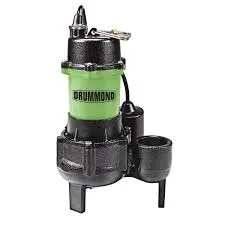Haitian Creole
- Afrikaans
- Albanian
- Amharic
- Arabic
- Armenian
- Azerbaijani
- Basque
- Belarusian
- Bengali
- Bosnian
- Bulgarian
- Catalan
- Cebuano
- Corsican
- Croatian
- Czech
- Danish
- Dutch
- English
- Esperanto
- Estonian
- Finnish
- French
- Frisian
- Galician
- Georgian
- German
- Greek
- Gujarati
- Haitian Creole
- hausa
- hawaiian
- Hebrew
- Hindi
- Miao
- Hungarian
- Icelandic
- igbo
- Indonesian
- irish
- Italian
- Japanese
- Javanese
- Kannada
- kazakh
- Khmer
- Rwandese
- Korean
- Kurdish
- Kyrgyz
- Lao
- Latin
- Latvian
- Lithuanian
- Luxembourgish
- Macedonian
- Malgashi
- Malay
- Malayalam
- Maltese
- Maori
- Marathi
- Mongolian
- Myanmar
- Nepali
- Norwegian
- Norwegian
- Occitan
- Pashto
- Persian
- Polish
- Portuguese
- Punjabi
- Romanian
- Russian
- Samoan
- Scottish Gaelic
- Serbian
- Sesotho
- Shona
- Sindhi
- Sinhala
- Slovak
- Slovenian
- Somali
- Spanish
- Sundanese
- Swahili
- Swedish
- Tagalog
- Tajik
- Tamil
- Tatar
- Telugu
- Thai
- Turkish
- Turkmen
- Ukrainian
- Urdu
- Uighur
- Uzbek
- Vietnamese
- Welsh
- Bantu
- Yiddish
- Yoruba
- Zulu
Telephone: +86 13120555503
Email: frank@cypump.com
Dec . 27, 2024 08:52 Back to list
tractor slurry pump
Understanding the Tractor Slurry Pump A Comprehensive Guide
In the agricultural sector, the efficiency of manure management is crucial for sustainable farming practices. One essential piece of equipment that has gained popularity is the tractor slurry pump. Designed specifically for the transport of liquid manure, slurry pumps are vital for ensuring that farmers can handle their waste efficiently while maintaining optimal productivity.
What is a Tractor Slurry Pump?
A tractor slurry pump is a type of pump specifically designed to handle and transfer slurry, which is a mixture of liquid and solid organic waste. This waste is typically a byproduct of livestock farming, and managing it efficiently is key to maintaining soil health and preventing pollution. Tractor slurry pumps are often attached to tractors, allowing them to be easily maneuvered across fields and farms.
These pumps can vary in size and capacity, depending on the specific needs of the operation. They are commonly used to load, transport, and spread slurry onto fields, providing a cost-effective and efficient method for recycling organic nutrients back into the soil.
Key Features of Slurry Pumps
1. Durability and Design Slurry pumps are designed to withstand the harsh conditions associated with handling manure. They are typically constructed from high-quality, corrosion-resistant materials to ensure longevity.
2. High Efficiency These pumps operate at high efficiency, enabling the quick transfer of large volumes of slurry. This efficiency saves time and labor, making it easier for farmers to manage their waste in a timely manner.
3. Versatility Many modern tractor slurry pumps are built with versatility in mind. They can be used for various applications, including pumping slurry into storage tanks, directly applying it to fields, or even transporting it to other locations.
4. Power Options Tractor slurry pumps can be powered through the tractor’s power take-off (PTO), ensuring that the pump operates in sync with the tractor's power system. This connection allows for efficient use of fuel and reduces the need for additional power sources.
Benefits of Using Slurry Pumps
Using tractor slurry pumps offers several advantages for farmers involved in livestock operations
tractor slurry pump

1. Nutrient Recycling By recycling slurry back into the soil, farmers can enhance soil fertility. Manure contains essential nutrients like nitrogen, phosphorus, and potassium, which promote healthy crop growth.
2. Environmental Protection Efficient slurry management helps prevent runoff into water bodies, which can lead to pollution. Proper application of manure reduces the risk of nutrient leaching that can harm ecosystems.
3. Time and Labor Savings The automation and efficiency of slurry pumps allow farmers to cover larger areas in less time, reducing the physical labor involved in manure management.
4. Cost-Effectiveness Investing in a tractor slurry pump can lead to long-term cost savings by reducing waste management costs and improving crop yield through better nutrient application.
Best Practices for Handling Slurry
To maximize the benefits of using a tractor slurry pump, farmers should follow best practices when handling slurry
1. Regular Maintenance Ensure the pump is regularly serviced to maintain its operational efficiency and extend its service life.
2. Calibration Properly calibrate the pump to match the specific application rate, which prevents over-application and ensures efficient nutrient usage.
3. Seasonal Application Apply slurry during appropriate weather conditions and at suitable times in the crop cycle to maximize nutrient uptake by plants.
4. Land Application Planning Plan the land application strategically to avoid nutrient runoff and to ensure even distribution across the fields.
Conclusion
The tractor slurry pump is an indispensable tool for modern farming. By understanding its features, benefits, and best practices, farmers can make informed decisions on integrating this technology into their operations. Ultimately, the effective management of slurry not only supports agricultural productivity but also contributes to environmental sustainability, paving the way for a greener future in agriculture.
-
Horizontal Split Case Pump with GPT-4 Turbo | High Efficiency
NewsAug.01,2025
-
ISG Series Pipeline Pump - Chi Yuan Pumps | High Efficiency, Durable Design
NewsAug.01,2025
-
Advanced Flue Gas Desulfurization Pump with GPT-4 Turbo | Durable & Efficient
NewsJul.31,2025
-
ISG Series Vertical Pipeline Pump - Chi Yuan Pumps | Advanced Hydraulic Design&Durable Construction
NewsJul.31,2025
-
ISG Series Vertical Pipeline Pump - Chi Yuan Pumps | Energy Efficient & Low Noise
NewsJul.31,2025
-
pipeline pump - Chi Yuan Pumps Co., LTD.|High Efficiency&Low Noise
NewsJul.31,2025










